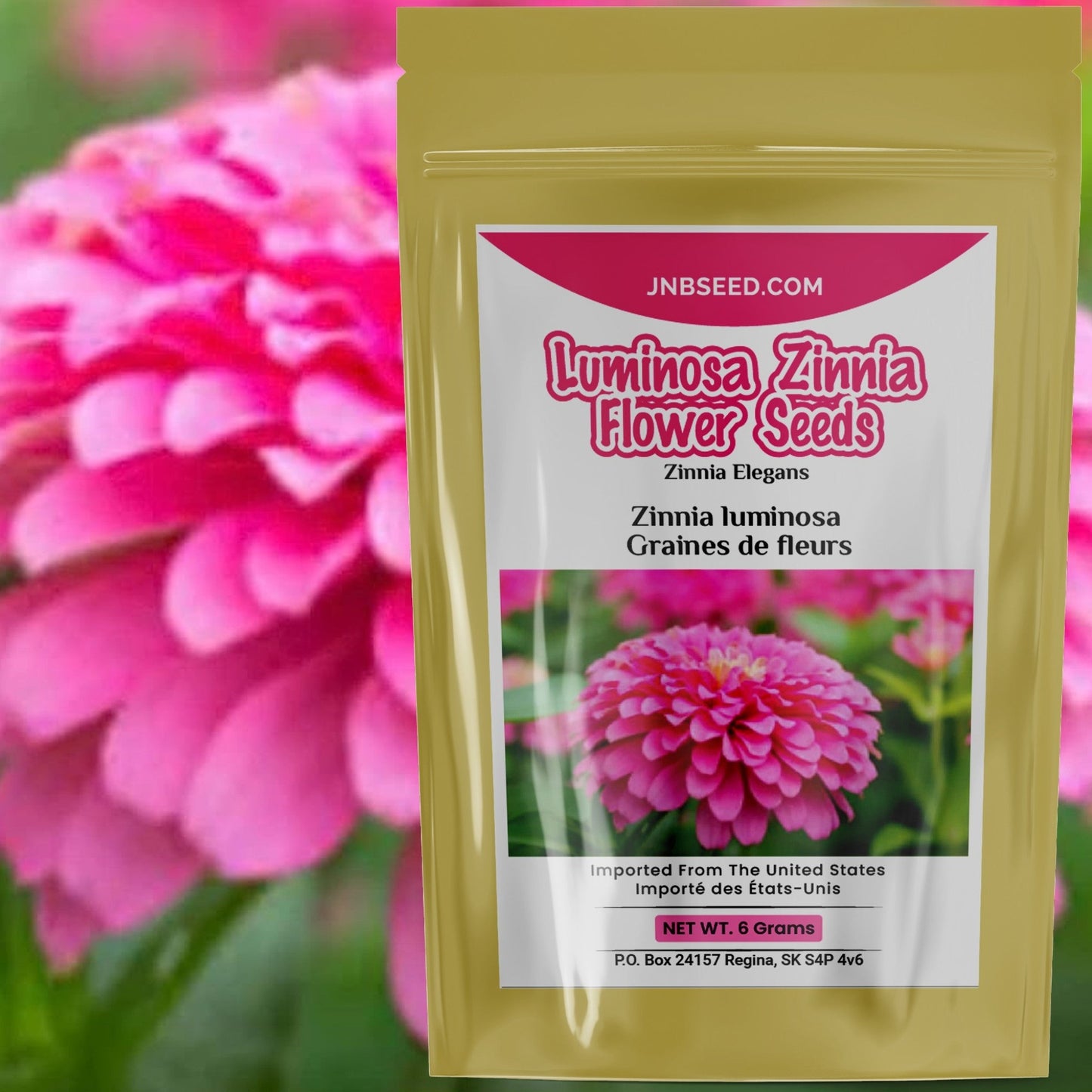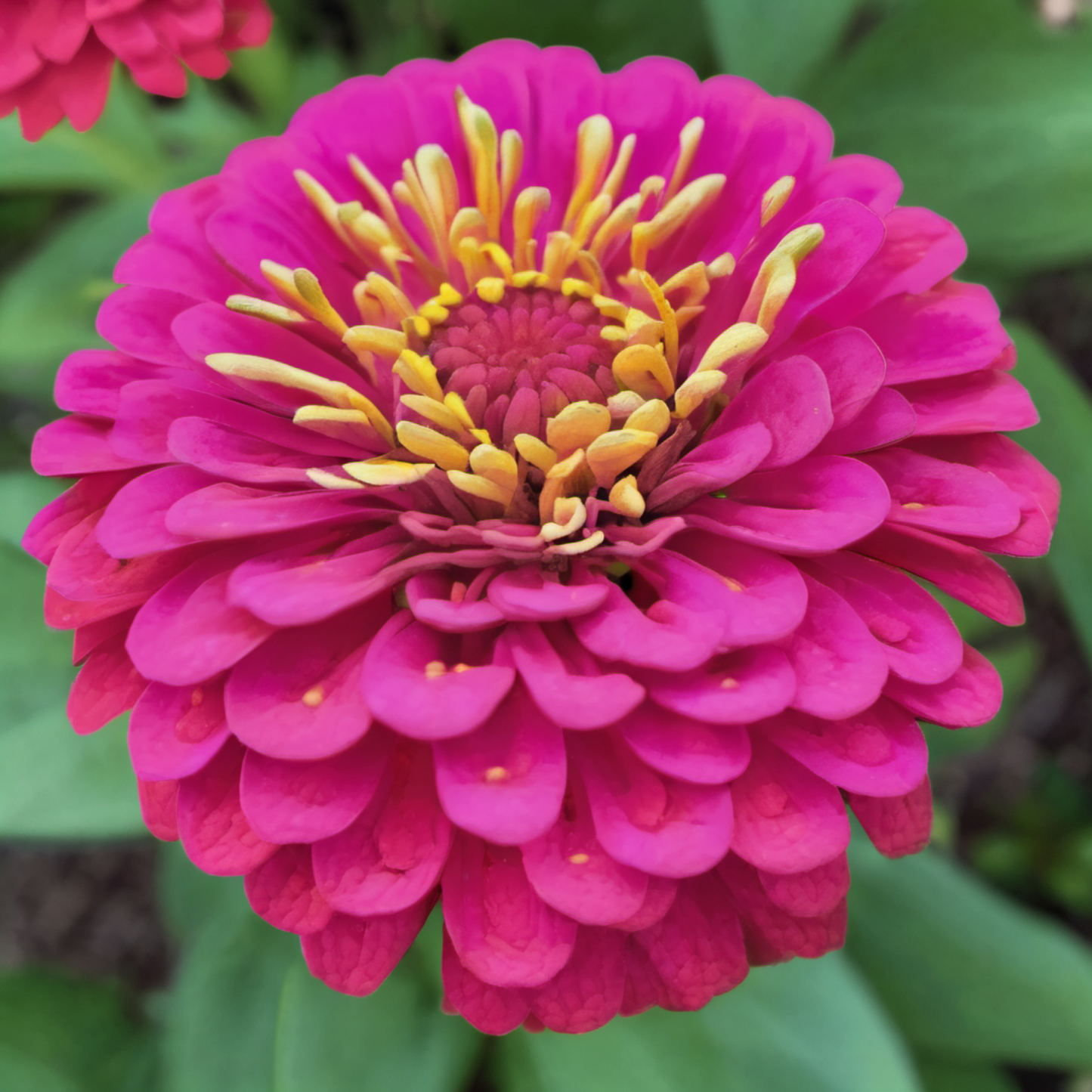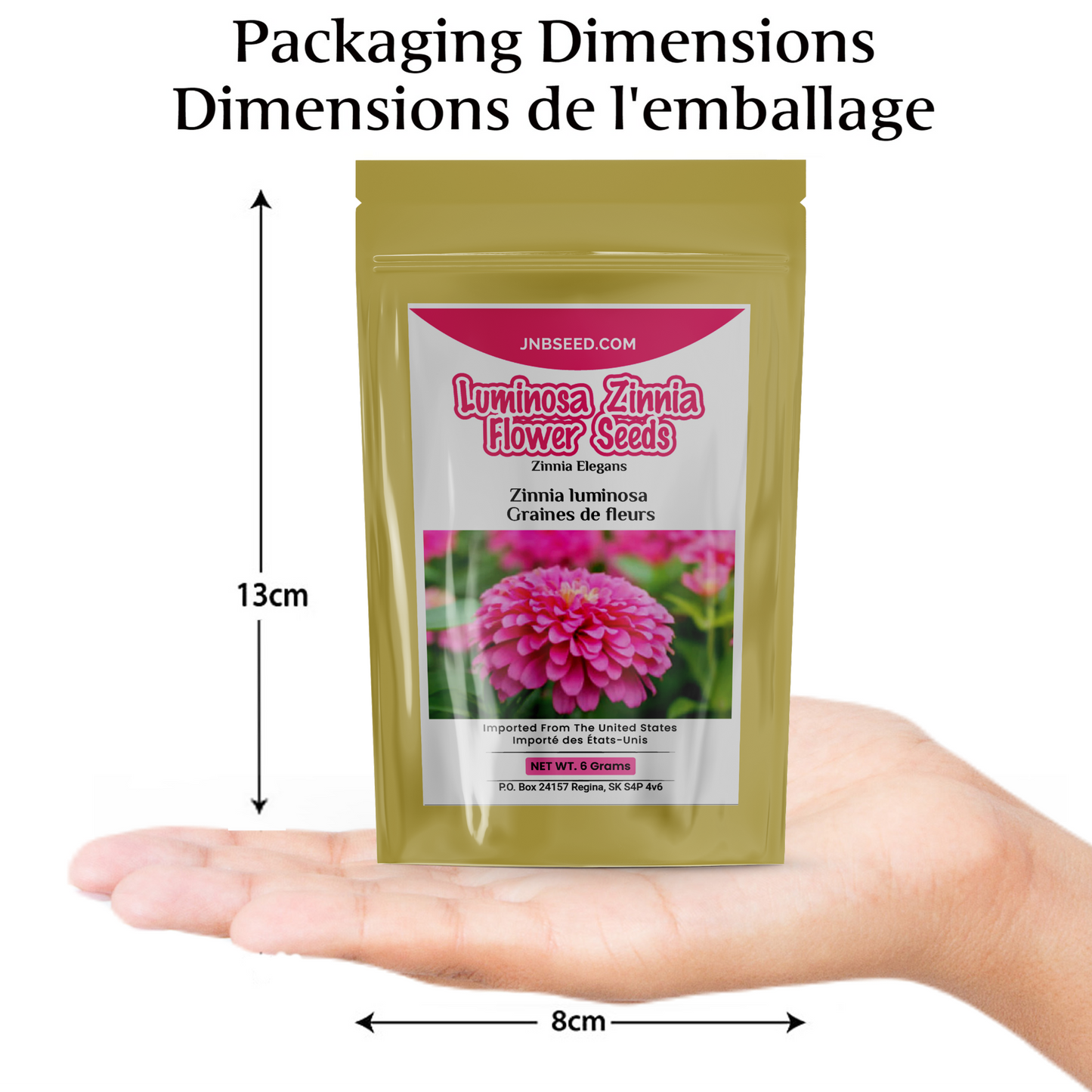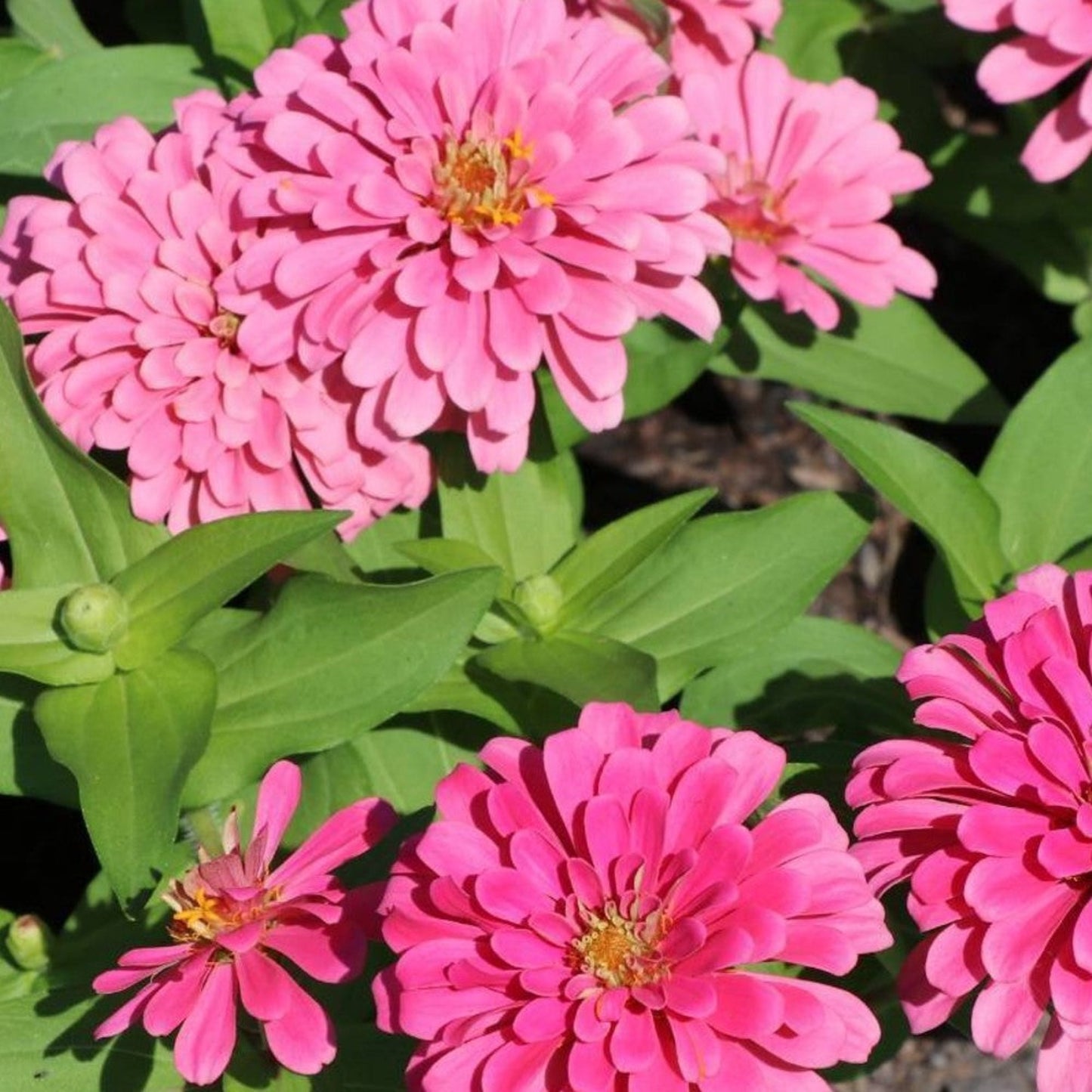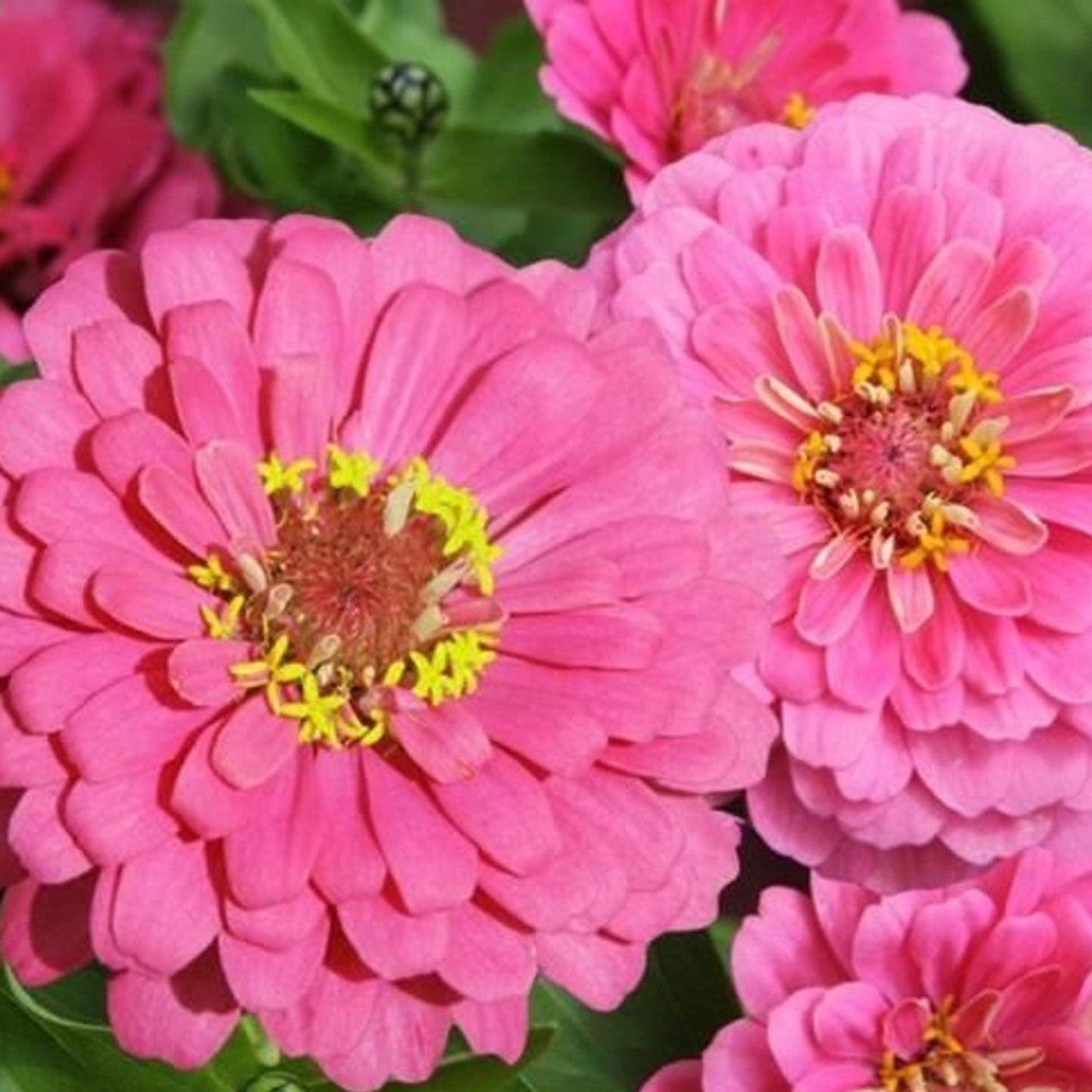JNB Seed
Luminosa Zinnia Flower Seeds
Luminosa Zinnia Flower Seeds
Couldn't load pickup availability
These vibrant pink blooms will infuse your garden or patio with energy and charm. As a taller variety of Zinnia, they create a striking display when paired with other hues of this beloved flower. Embraced by gardeners, butterflies, and honeybees alike, they bring joy to all who encounter them.
The botanical history of this plant traces back to the explorations of Spanish botanists Mocino and Sesse in 1789, when they stumbled upon it thriving in the untamed landscapes of southern Mexico. The moniker "zinnia" pays homage to the pioneering work of German botanist Johann Gottfried Zinn, one of the earliest cultivators of this species following its discovery. In the language of Victorian flowers, zinnias symbolize fond remembrances of distant friends, adding a layer of sentiment to their already vibrant presence.
As these blossoms sway in the breeze, they evoke a sense of nostalgia and wonder, reminiscent of the untamed beauty of Mexico's southern landscapes. With each petal, they whisper tales of exploration and discovery, inviting all who behold them to embark on their own botanical adventures. Whether planted in a bustling garden or nestled on a serene patio, these zinnias serve as a testament to the enduring allure of nature's wonders.
Share
How To Grow
How To Grow
Sowing: Zinnia Luminosa pink flower seeds should be directly sown in the spring when the soil temperature reaches a cozy 18-24 degrees Celsius. Plant the seeds just below the surface, ensuring they are nestled in warmth, and maintain a light moisture until germination, typically within 7-10 days. It's crucial to note that these seedlings do not take kindly to transplantation.
Growing: Nurture the seedlings with regular watering until they establish themselves, being cautious not to drown them with excessive moisture. While they appreciate occasional watering during dry spells, mature plants can withstand some periods of drought. Optimal growth occurs in nutrient-rich soil, potentially supplemented with light fertilization to encourage abundant blooming. To promote bushiness, pinch off growing stems, and deadhead to extend the flowering period. The presence of butterflies and bees adds to the garden's allure.
Harvesting
Harvesting
For cut flowers, select stems with freshly opened blooms, removing any foliage that might dip below the water level in a vase. Placing the stems in water immediately ensures their freshness and longevity.
Seed Saving
Seed Saving
Once the petals have faded and fallen, the flower centers will darken, giving way to clusters of seeds at their base. When these seed heads have turned a deep brown hue, they are ready for harvest. Spread them out to dry for several days, then separate the small, arrow-shaped pink Zinnia seeds from the chaff. Store the cleaned seeds in a cool, dry place for future planting.
Extra Facts
Extra Facts
Latin Name: Zinnia elegans
Species Origin: Introduced US Flower
Type: Garden Flowers
Life Cycle: Annual
USDA Zones: 1-12
Sunlight: Full Sunlight Required
Height: 91.44 Centimeters
Color: Pink
Bloom Season: Late Summer to Early Fall Blooming
Uses: Ideal for Cut Flowers, Resistant to Deer
